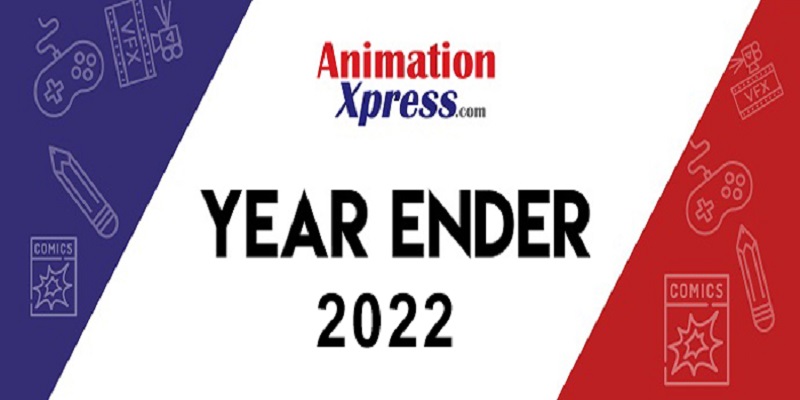
The Metaverse is the beginning of a new era in which blockchain technology and the NFT shift can be fully enjoyed. Interestingly, the term “metaverse” was coined in 1992 by novelist Neil Stevenson for his novel, Snow Crash. Stevenson defined the metaverse as a virtual world where characters could escape a bleak totalitarian reality.

MetaMisfits founder Ajoy Das shared with AnimationXpress, “To be honest, the concept of the Metaverse has been prevailing for a long time! However, I believe, to implement it successfully, blockchain and NFTs have played a major role. Ever since 2021 specifically, the Metaverse has witnessed a surge. On the other hand, the adoption of NFTs is still in its nascent stages but will of course render a significant impact on the gaming sector.”
The number of connoisseurs have grown over time, amplifying the metaverse transition. From Ariana Grande’s concert in Fortnite to Daler Mehndi’s concert in Partynite, the world of Metaverse is slowly expanding and showing its immersive potential globally.
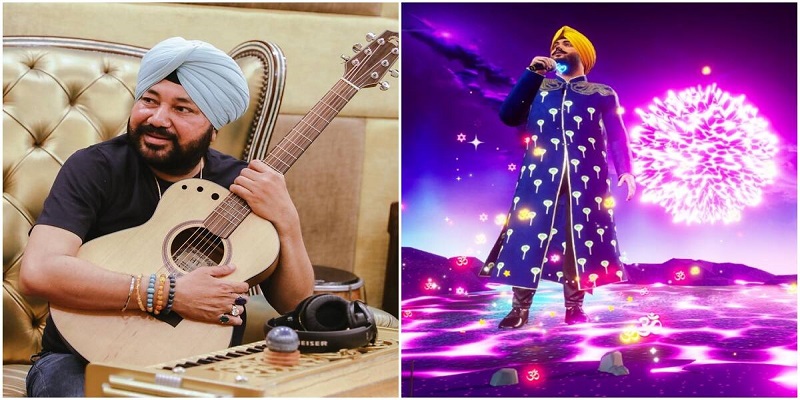
In June, Shubhika Sharma from Papa Don’t Preach, a Bollywood celebrity designer and India’s first metaverse fashion designer, displayed her garments and accessories on the metaverse platform and the brand’s Instagram page shared glimpses of it. Six of Papa Don’t Preach pieces have walked the digital runway. The outfits, along with accessories,were also available as NFTs post-show.
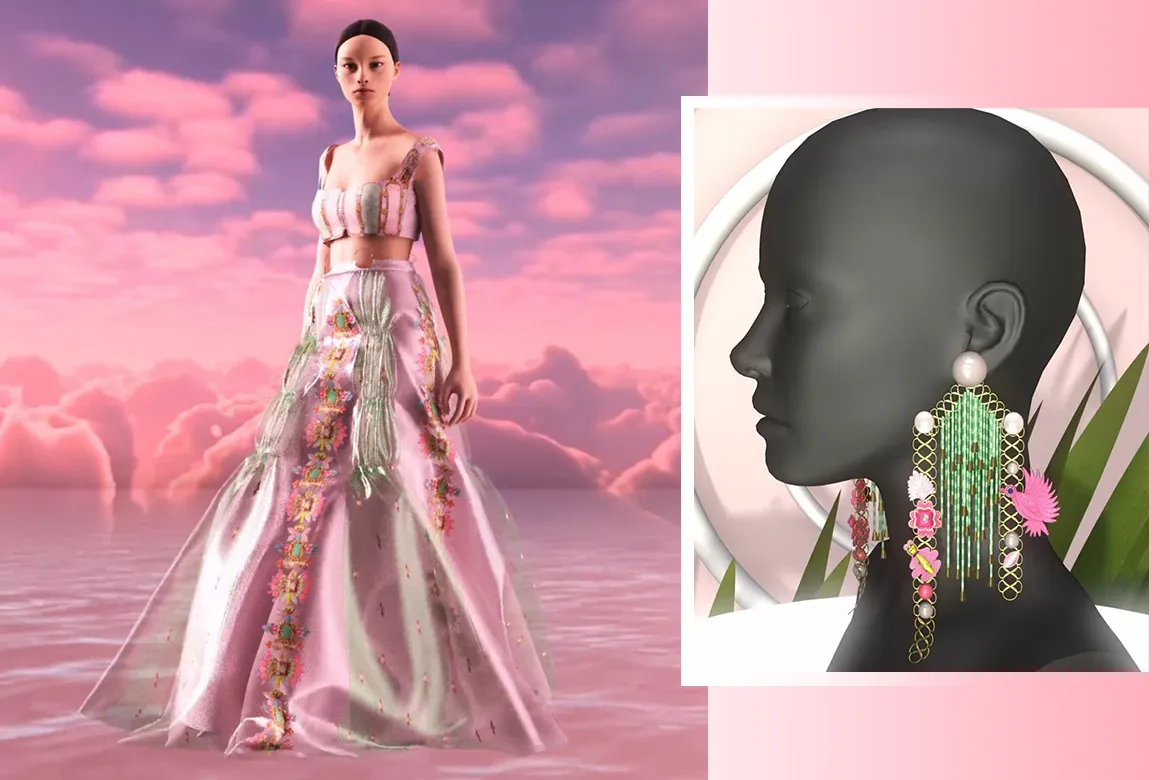



Metaverse, Blockchain Gaming, and NFTs Trends
According to Newzoo’s Trend Report 2022 on The Metaverse, Blockchain Gaming, and NFTs, the key trends are:
- Big Tech and Brand involvement – Consumers spend increasingly more time in virtual worlds, and successful brands follow them. As a result, consumer-facing companies will be forced to develop a metaverse strategy to stay connected with their (future) customers and remain relevant.
- The Future of Music and Entertainment – Music NFTs are an alternative way for artists—most of whom depend on extractive record labels and centralised platforms to earn a living—to increase their earning potential. This allows them to sell their singles, EPs, or albums as NFTs to their most loyal fans.
- The Future of Fashion and Luxury Brands – As time spent in virtual worlds increases, our digital identity and representation will grow in importance. This opens a wide array of opportunities for traditional and digital fashion brands alike to dress our digital selves with in-game skins and virtual garments, thus giving rise to the direct-to-avatar business model. This also has important implications for the future of e-commerce.
- Play to Earn and Blockchain Gaming – As time passes, we are likely to see more blockchain games challenge traditional AAA titles in terms of technical complexity and—at some point—size of the player base. Though blockchain gaming faces some notable challenges—particularly sustainability and regulatory concerns—these are likely to be mitigated as the space matures.
- An introduction to NFT Collections – 2021 has undeniably been the year of NFTs, with several high-profile collections being sought after for the boost in social status and financial incentives they offered. Despite the current market pullback, profile picture (PFP) NFTs are likely to be key elements when it comes to digital identity in the metaverse.
As per Ajoy Das, the key trends for blockchain gaming would be NFT, play-to-earn games, metaverse, and DAO. Decentralisation will be the next in-thing in the segment which will empower the players to decide the future of the game.
India is one of the most populous nations, and it has a sizable talent pool. Not only that, but according to analysts, India will be the main force behind the immersive change. India has a role to play in the growth of the metaverse, and several signs suggest that it is in a good position to do so.
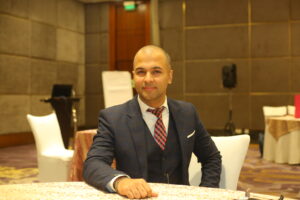
Jetking Infotrain CEO and MD Harsh Bharwani believes that the AVGC sector will also bolster in building the metaverse to cater to the Indian markets and aims to fulfil global demands. “The top trends of the Metaverse in the AVGC sector include – AR, VR, Character Creation, World Building, and so on. These areas need to augment and train the workforce for the next five to 10 years to achieve sector growth. Furthermore, the UX/UI design and animation areas will also get more boost with new changes and requirements. Experts like testers, artists, developers, and so on can easily grab the opportunities in the coming days,” he added.
Challenges and opportunities
Metaverse will bring a change in the traditional thought of doing business. The scope of action for investors and stakeholders will be different from the real-world business. Therefore the industry is working in progress to power up the immersive sector by figuring out the challenges.

For example, XR Central founder and director Anshul Agarwal shared, “We felt that there was a lack of SaaS solutions for the metaverse, and since it will be such a big part of our future experience of the internet and technology, it seemed clear to us that we should be the ones developing a SaaS platform. With MetaQube, people across industries and geographies can easily access the metaverse and create their own worlds within minutes.”

now.gg vice president of global marketing Juhi Hajela discussed the release of NFG, noting that games may be divided into game code, game events, and game art, with various individuals controlling various components of the game. The now.gg fungible game is an important step toward a mobile game metaverse that is compatible with Web 3.0.
NFTs are fast-growing in the gaming industry, but their usage is limited to either mining them to get small souvenirs or receiving an NFT as an award for winning a game. Therefore, it seems to be of limited usage. But going forward, stakeholders will energise NFT with full power. Then the in-game economy will take the front seat. Das shared that the urge to earn in-game rewards is becoming the key driver of the in-game NFT. He expressed, “I have always seen gaming enthusiasts investing their money into the games and working hard for the in-game rewards. However, with the emergence of Web3, NFTs, metaverse, and blockchain coming into the scenario, the in-game economy will expectedly become more valuable than the real-life economy. Apart from this, what I also feel is that the concept of true ownership and visibility of ownership has always been in need in games. And I am of the view that NFTs and blockchain are the long-lost solutions to these issues!”

One of the important challenges of the metaverse will be the relatable avatar design as per the client’s interest. While creating avatars for Telangana Government’s Space Tech Framework through Gamitronic’s metaverse platform Partnite, the same challenge was faced by the company. Gamitronics founder Rajat Ojha added, “There were no challenges except getting individual attendees’ avatars as they needed every dignitary to look exactly as they look in real life.”
But the root challenge behind the growth of metaverse, blockchain and NFTs is that, as India is highly populated, the majority of the population will be stuck with Web2 and centralised projects. A significant barrier impeding the development of the metaverse and NFT in the nation is the absence of appropriate education and understanding regarding blockchain, play-to-earn games, NFTs, and Web3. Additionally, the high cost of entry into NFTs and projects serves as a barrier that prevents the general public from accessing them. This can be overcome when the government’s financial institutions utilise the full potential of the technology and validate the technology for the people of the country.
The risk aspect that can exist for consumers and gamers is that not all projects will be successful. In the market, there will be con artists and dubious initiatives that exist just to deceive the consumer. As a result, it is advised that one always do extensive study and have first-hand knowledge of what they are entering into. This will allow one to supervise the business operations with ease and tackle any potential future problems or inefficiencies.
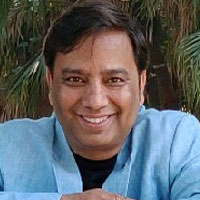
Metaverse is an emerging space in the country with a lot of interest from the VC space. “However, the future potential of the space is yet to be decided as most stakeholders are waiting for useful and easy-to-implement applications of the metaverse in a growing country like India,” said ESPL director Vishwalok Nath.
Advent of NFT P2E games and esports?
Since the gaming and esports audience is young, experimental, and tech-savvy, gaming is one of the first industries to embrace new technological innovations. NFT P2E games have grabbed a lot of eyeballs in the country. Some also misconceived the idea of paying to play real money gaming, which is quite a debatable topic among analysts.
Nath shared, “NFT P2E games as a concept have already existed in the video game industry since the initial stages. Now, the general idea of skins has been adapted to include the hype of NFTs. Similarly, the P2E concept has been around for a while in the mobile gaming space in countless multiplayer games. However, NFT P2E games have a lot to prove before they can enter the tournament. It is likely someone has or can conduct a tournament for NFT P2E titles, but we need to look at the long-term viability and utility of the concept.”
Agarwal has opined, “NFT P2E games like Axie Infinity are more to do with the fun factor of play and earn through an interactive storyline/player interaction. Getting a competitive esports angle to it is going to be quite difficult since the ‘EARN’ part of it can’t really be put up in a competitive scenario (unless we treat this as an RMG category competition). NFT P2E space is at its very early beginnings, and it’s still going to take quite some time for newer games and newer concepts to come in. Until then I believe it will stay more as a ‘Earn while enjoying’ model rather than competitive.”

P2E games are becoming increasingly popular and it’s only a matter of time before they become more competitive than they are now. Qlan founder and CEO Sagar Nair shared, “Tournament platforms such as Ignite tournaments have already secured around $10M towards the curation of such tournaments to engage the gaming industry in a way like no other. NFT is one the next big thing for the gaming industry all over the world as many are worth more than any other in-game assets.”
The way the esports industry is swelling and expanding with new investments and new collaborations, it will not be surprising at all that going forward we might experience esports in a metaverse immersively where the viewers need to buy virtual tickets with cryptocurrency on a decentralised platform or in exchange of NFTs.

“Owing to this, in no time are we going to see big LAN events happening in the metaverse. It also serves numerous benefits to audiences, players, organisations, and brands. Everything in the metaverse can be customised, scaled up, and innovated to make it a very captivating experience for all parties involved. It also allows spectators from all over the country to participate in a much greater capacity than just watching a match on Youtube/TV, and allows brands to have various touchpoints to interact with the fans,” added Alpha Zegus founder and director Rohit Agarwal.
How has the year 2022 been for the sector?

According to Newrl founder Swapnil Pawar, “The year 2022 started on a fresh note, with the markets in general rebounding strongly from their lows set during the Covid period. But the rally was meant to be short-lived as the ill-timed policy measures taken by central banks around the world pushed the markets to dangerously low levels, giving us flashbacks to the 1980s crisis. Now that we are near the end of the year, we have seen strong resilience both from the employment market and consumer spending and although recession fears have abated, we are still not out of the woods just yet.
The impact was especially pronounced in the blockchain and metaverse industry. Meta’s stock plummeted to wipe out billions of investor wealth. All cryptocurrencies suffered high volatility and losses compounded. Investor sentiment in this sector specially dried up as money flocked to safe havens like Japanese bonds, precious metals, and so on.”
Aficionados are showing interest in the sector. Game development companies like Supergaming are developing Web3 games like Tower Conquest, IndiGG on their gaming guild whereas Stan is creating NFTs on popular esports athletes and influencers. Apart from that non-endemic brands are aiming to explore the region on a full scale. Tanishq unveiled its wedding collection titled ‘Romance of Polki’ in the metaverse’s 3D display zones where distinctive pieces from the collection were displayed.
Similar to this, Ceat Limited, one of the biggest tyre producers in India, is developing its own Ceat Shoppe in the metaverse. Their e-commerce platform is connected with the metaverse. Customers will be able to place orders and view products in 3D simultaneously. The business will also provide customers with the choice of having their tyres delivered and fitted at home. There will also be a pick-up option at the real stores.
Mahindra & Mahindra conducted NFT marketing tests. It sold four NFTs with a Thar theme for an average of Rs 26 lakh each. The auction’s winners had the opportunity to experience driving an off-road vehicle, the Thar. The travel operator MakeMyTrip introduced virtual holiday NFTs with themes inspired by the top travel locations in India. The cost of each NFT was Rs 14,999.

Yudiz Solutions chairman and director Bharat Patel believes in the application of smart contract development in blockchain and the acceptance of CBDC by various nations.
“We saw a good synergy between blockchain and gaming as we were introduced to the blockchain-based ‘Play to earn’ model for gaming. The compound effect of this synergy was the rise of new kinds of gamers and users who were earning while showcasing their interests. Blockchain has made the gaming industry more secure and scalable by introducing amazing concepts.

Metaverse on the other hand is still in the early stages of development. People need to understand the concept and just like blockchain gaming once they are aware of how the financial system will work inside the metaverse as well as outside it, I think they will start to become more interested in the concept,” Patel added.
EDGE Metaversity academic director CB Arun Kumar said, “Virtual and augmented reality technologies are becoming increasingly important in the AVGC sector, with many companies exploring their potential for use in gaming, animation, and other areas. These technologies have the potential to create more immersive and interactive experiences for users, and their adoption is likely to continue to grow with the development of the various Metaverse platforms from Industry leaders like Meta, NVIDIA, Epic Games, Unity Technologies, Google, Amazon and Microsoft.”
It will be interesting to observe how metaverse, NFT, and blockchain will gain popularity like any other technological paradigm shift in 2023.